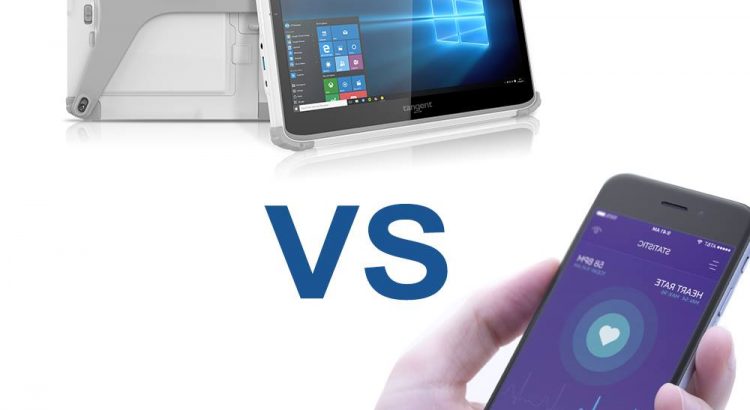Technology you encounter at hospitals can be a tad confusing or funny at times. You see million dollar state-of-the-art scanners and treatment machines, but then you also see a doctor walk by with a 90s style pager clipped to their pocket.
The reason for this is that they both suit their purpose best. The most up-to-date scanners do a better job of identifying anomalies and areas of concern, and the old pagers have a longer battery life and better signal strength than cell phones can get in hospitals. You also see hospital staff roaming around with medical tablets more often than mobile phones, although one would think that mobile phones do just as much for cheaper.
However, there’s quite a bit of thought that goes into the tablets used by medical professionals.
Most standard mobile phones like the iPhone are created for general consumer use for normal daily activities like making calls, using the internet, or taking photos. Medical grade tablets are designed specifically for use in healthcare facilities.
For example, the Tangent Medix T13 has a magnesium chassis that makes it 33% lighter than aluminum and offers high impact resistance. The surface of the medical tablet is treated with an antimicrobial surface that prevents the growth and/or spread of infection and germs, and it also keeps the enclosure material from degrading over time. You’re not likely to see a feature like that on a regular mobile device. Mobile phones are also susceptible to water damage even from minor contact with it. The T13 medical tablet is rated at an IP65 level of protection from dust, water, or contaminant intrusion into the computer. Mobile phone design is meant to be sleek and aesthetically pleasing to the consumer eye, but without a good case and screen protector, they are not long for this world. Tangent’s medical tablets are constructed with a rugged design that has good grip and protected against vibration and shocks from short drops.
The internals of the devices also have quite a few notable differences. While a mobile device’s battery can be recharged within an hour or so, hospital staff simply can’t wait that long. Tangent’s T13 medical tablet has hot-swappable batteries that can be switched out while maintaining continuity in power. That is a huge thing for patient care, and a big reason why many still carry those old pagers to get quick notifications. If you know Apple, then you know that they don’t customize their product or allow for repairs, even replacing the battery when it’s bad. Tangent enjoys offering accessories and options on their products that best suits the needs of their clients. On the outside, the T13 has a kickstand and a hand strap for easy mobility and visibility. Inside, they offer a barcode scanner and/or RFID for asset tracking or locating patients. The details make everything about a medical tablet, which is why medical facilities invest in what works best for them.
